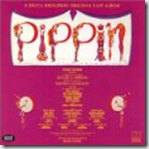On Accountability
I'm not a river or a giant bird
That soars to the sea,
And if I'm never tied to anything,
I'll never be free
-From the Finale of the musical Pippin by Stephen Schwartz
 Twenty years ago, I had the good fortune to perform in this play as the eponymous character with a community theatre troupe. The run was four performances over two weekends. So, if you throw in rehearsals, I must have sang these lyrics dozens, perhaps hundreds of times.
Twenty years ago, I had the good fortune to perform in this play as the eponymous character with a community theatre troupe. The run was four performances over two weekends. So, if you throw in rehearsals, I must have sang these lyrics dozens, perhaps hundreds of times.
It was not until at least ten years later, when I first began reading the works of Peter Block, that I even began to understand them. What Schwartz has so elegantly defined for us is the idea of accountability.
Over the past few years I have read countless books, articles and blog posts that call for more accountability in the workplace. With the exception of Block, they all suppose that it is a management function to develop processes to "hold people accountable." Think back on your past conversations about accountability and, no doubt, they will be transitive in nature. Herein lies the problem.
Accountability is not something can be imposed, but rather chosen. Peter Block begins to develop this idea as far back as Flawless Consulting and it comes to full maturity in Freedom and Accountability at Work. It is absurd to think we can even try to "get those people to be accountable."
In Viktor Frankl's Man's Search for Meaning, the author writes of his experiences surviving a Nazi concentration camp and comes to the understanding that the only human freedom that cannot ever be taken away is the ability to choose how one feels about any given situation. Even if we are a victim of unspeakable crimes, we have the choice as to whether or not we feel like a victim. We are accountable for our own feelings, not anyone else.
Indeed, it is not only totalitarianism that is the enemy of freedom, but vagueness. In my view this is the problem with accountability in business. It is not that people do not want to be accountable, but rather that leaders are unclear about the expectations. Ron Baker tells a story of proposing this gedanken to a group to which he was speaking - What if timesheets became illegal? One participant blurted out, "Oh, my God, we would actually have to lead."
The startling conclusion at which I have arrived through reflect on Block and Schwartz is this: Freedom and accountability are not just linked but are actually one and the same. If you want people to "be accountable" give them their freedom, but be clear about the expected results.
